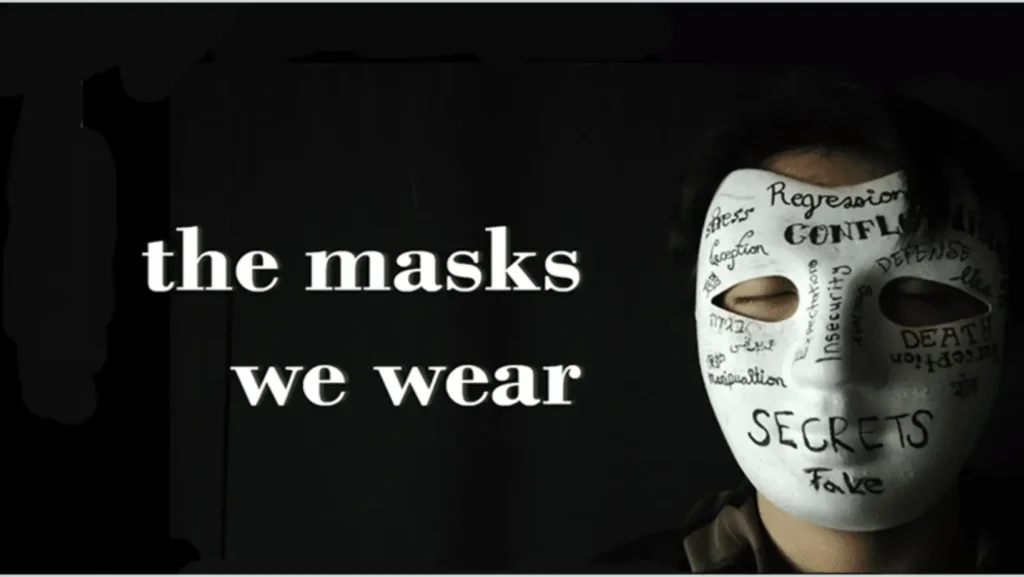
Do you know that every human wears many masks in their lifetime? We play the role of mother, father, friend, and worker. We adapt ourselves to the situation. But underneath the surface, a part of you is waiting. Who am I behind all these roles? Let’s reflect on how to start the journey into this sacred self-discovery pathway.
The Masks We Wear
Every day, we all wear masks to manage and or operate successfully. When we are at home (home roles), we might behave differently than when we are in our workplace (work roles). When we are with our friends (friend roles), we might show a more illuminated ‘mask’.There are ways we need to act out and play a role so we can navigate life.
The danger arises when we lose sight of who we are without all these layers. When we assume our assumed roles as identity markers, we cannot see that our soul isn’t being fed. Eventually, we can evaluate the emptiness within us, inside, but we feel like we are getting things right. When you realize that all of these roles exist on the same layer, that’s when we can begin to heal.
Read more: How Travel Alters Your Thought Patterns
The Role of Losing Yourself
Over time, we learn to ignore our feelings, and we begin to focus on what it means to be ‘accepted’ rather than being ‘real.’ We are rewarded in life for ‘fitting in’ and we begin to live for the approval of others. As we move forward in life, we forget who we are and what we love or believe in. Life gets busy with responsibilities, and the essence of how we find meaning is forgotten. We lose ourselves, and as a result, life feels mundane and confusing. We laugh on the outside and cry on the inside.

The Inner World is the True World
Each human was created by Allah with a pure spirit. A spirit that carries our one true identity. In the Qur’an, it says: “And do not be like those who forgot Allah, so Allah made them forget themselves.” Surah Al-Hashr 59:19; this is a very powerful statement. Once we neglect to remember Allah, we also neglect to remember ourselves; the light within our spirit goes out, and our brain stays hijacked by an ongoing stream of thoughts, yet our heart becomes hollow. Only through a return to Allah can we remember who we truly are, and only through the remembrance of Allah can we find peace and clarity.
The Islamic Case Study in Real Life: Umar ibn Al-Khattab (RA)
Before Islam, Umar ibn Al-Khattab was no doubt a strong leader. He was athletic, arrogant, and ferocious. But Umar’s heart was empty. His transformation came with Islam. He became gentle, humble, and deeply spiritual. Also, he no longer lived to accumulate power; he lived for truth and justice. He no longer lived according to what others expected of him; instead, he listened to his soul and followed the path that Allah guided him toward. His journey is a classic example that demonstrates how the true self is awakened when we find divine guidance. Our roles may transform, but our soul remains stable and connected to Allah.
Your Soul is your Identity
Your job, title, and status can transform. But your soul is the same every day. It carries your values and dreams, no matter what. It knows your true purpose. The soul is not reliant on other people giving applause for success. You stop acting for everyone else. Instead, you become a person of honesty and integrity. Instead of living for notoriety, you become more comfortable in your skin.
Listen to Your Feelings
Your feelings are not bad. They are your guides. For example, when you experience stress or anxiety, it is an indicator that there may be something wrong. When you experience joy, that is an indicator that something is right. Do not minimize these feelings. Ask yourself, “Why am I feeling this way?” and “What does my heart need right now?” They help allow you to identify what you love and what is hurting your soul. If you honor your feelings with honesty, you can continue the healing process.
A Psychological Perspective: The False Self
Carl Jung, a famous psychologist, once proclaimed that we all possess a “false self.“
A false self is the person we have become as a result of the expectations of others. It is the smile we fake. It is the silence we maintain in the face of scorn. While the false self may serve as a function of societal acceptance, it is not the person we are. Our true self lies beneath that mask. The true self feels calm, while the false self only feels pressure.
Psychological Case Study: Role Confusion (Erik Erikson)
Erik Erikson also referred to identity confusion. He means people are tied to their roles. As someone may say, “I am a perfect daughter” or “I am a good friend”. What happens to a person when he/she is no longer in that role? When they don’t fulfill responsibilities associated with the role? When those roles are broken, they don’t know who they are. They start questioning their value. As I said, it is very troubling to attach all of who you are to roles. Your real identity stems from the knowledge of your values, beliefs, and relationships with Allah. Roles can be broken. Your soul cannot.
read more: How to Set Boundaries and Still Feel Good

The Journey Inward
The world around you is intense. Your soul talks in silence. Start to spend time alone. Turn off the noise. When do I feel closest to Allah? These questions help open the doors to the inner world. In time, your real self-arises. That self is not scared. It is strong, calm, and connected.
Quran Mirror: You Are More than Your Labels
Allah says in the Qur’an: “Surely, the most honorable of you to Allah is the one of you who is most righteous.” (Surah Al-Hujurat 49:13) What this means is that your worth is not in your looks, your money, or status. Your worth is in your taqwa—your consciousness of Allah, and that is what Allah is going to see. That is what Allah is going to honor. Your labels will be irrelevant in the Hereafter. What will matter is your heart. What will matter is your truth. That is where your true identity resides.



Leave a Reply